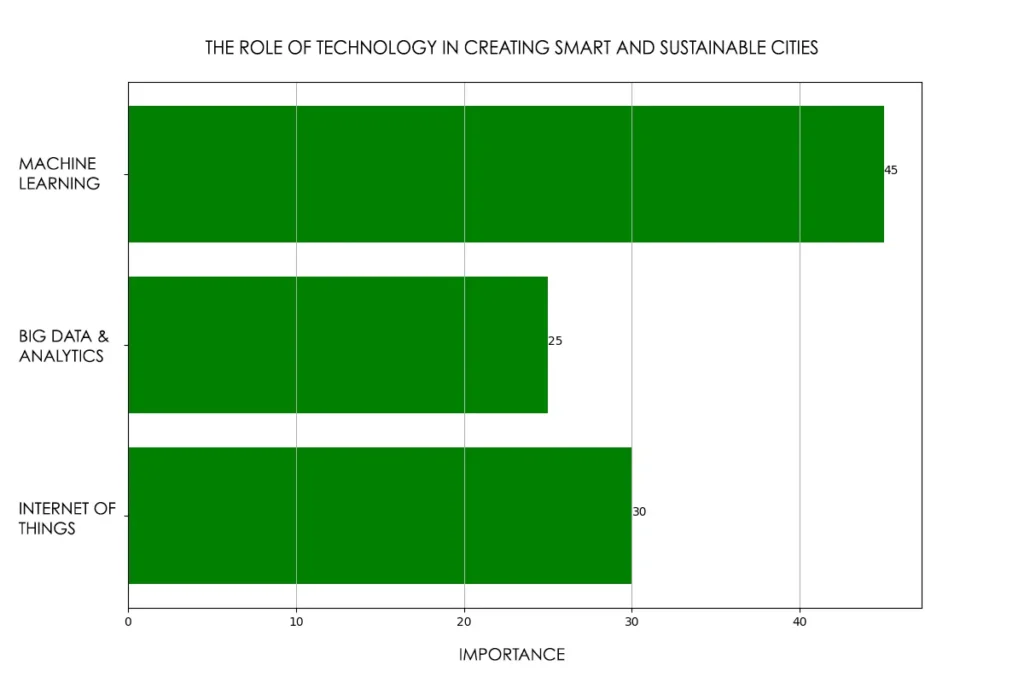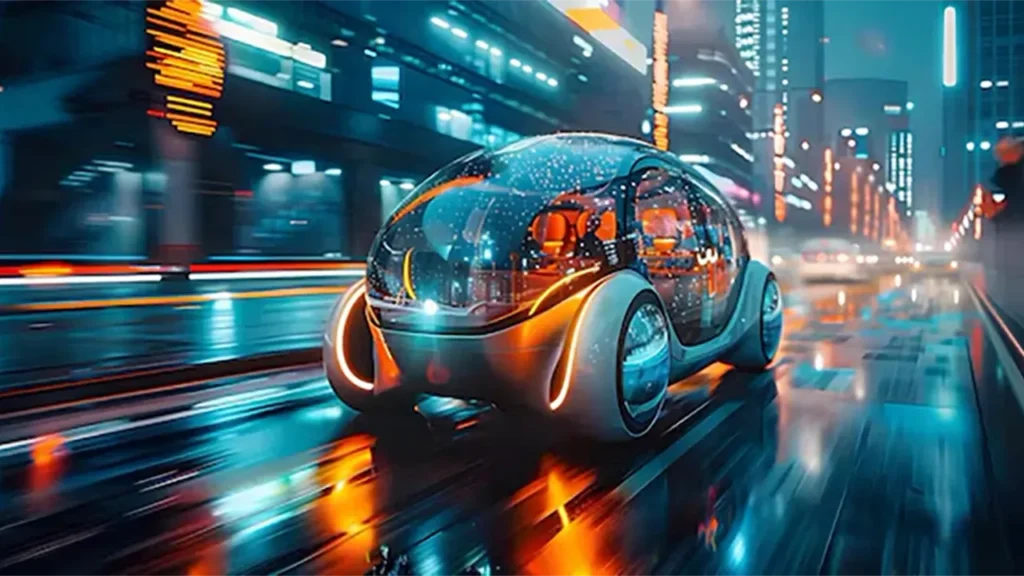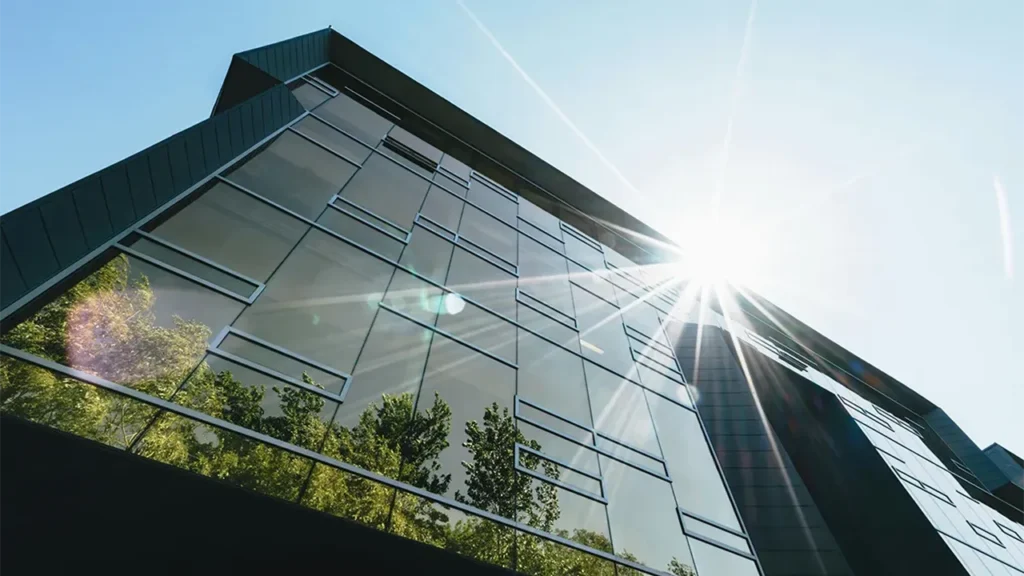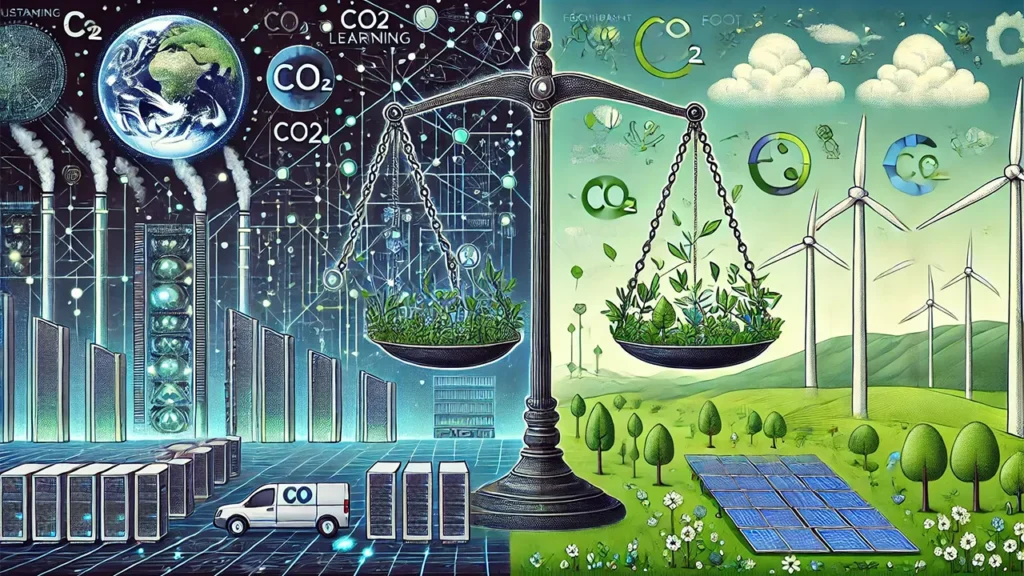Table of Contents
Introduction to smart cities and their importance in the modern world
In the rapidly evolving landscape of the 21st century, cities are transforming into dynamic hubs of innovation and progress. Smart cities, a concept that seamlessly integrates cutting-edge technology with sustainable urban planning, have emerged as the epitome of modern living. These urban centres are designed to enhance the quality of life for residents while minimising their environmental impact, paving the way for a greener and more efficient future.
The need for environment-friendly solutions in urban areas
As cities continue to grow and urbanisation accelerates, the strain on our planet’s resources becomes increasingly evident. Traditional urban development practices have often prioritised economic growth over environmental considerations, leading to a myriad of challenges, including air pollution, water scarcity, and excessive waste generation. To combat these issues and create truly sustainable urban environments, innovative and environment-friendly solutions are imperative.
Benefits of adopting environment-friendly solutions in smart cities
Embracing environment-friendly solutions in smart cities offers numerous advantages that extend far beyond the realm of environmental preservation. By implementing sustainable practices, cities can:
- Reduce their carbon footprint and mitigate the effects of climate change.
- Improve air and water quality, enhancing public health and well-being.
- Foster economic growth through the development of green industries and job opportunities.
- Promote social equity by providing access to clean and affordable resources.
- Enhance urban resilience and preparedness for natural disasters and environmental challenges.
Innovative energy-efficient technologies for smart cities
Energy consumption is a significant contributor to urban environmental impact, making energy-efficient technologies a crucial component of smart city development. Here are some cutting-edge solutions that are revolutionising urban energy management:
- Smart grids: These advanced electrical grids integrate renewable energy sources, such as solar and wind power, into the existing infrastructure, enabling efficient distribution and storage of energy.
- Energy-efficient buildings: Incorporating passive design strategies, such as natural ventilation and daylighting, as well as energy-efficient appliances and insulation, can significantly reduce a building’s energy consumption.
- LED street lighting: Replacing traditional street lights with energy-efficient LED technology can result in substantial energy savings and reduced maintenance costs.
Sustainable transportation solutions for urban areas
Transportation is a significant contributor to urban air pollution and greenhouse gas emissions. Fortunately, smart cities are embracing innovative solutions to address this challenge:
- Electric vehicles (EVs): Encouraging the adoption of EVs through the installation of charging stations and incentive programs can significantly reduce emissions and improve air quality.
- Public transportation: Investing in efficient and accessible public transportation systems, such as light rail, bus rapid transit, and bike-sharing programs, can reduce private vehicle usage and promote sustainable mobility.
- Smart traffic management: Implementing intelligent traffic management systems, which optimise traffic flow and reduce congestion, can minimise emissions and improve air quality.
Waste management and recycling systems
Effective waste management is crucial for maintaining a clean and healthy urban environment. Smart cities are leveraging technology to revolutionise waste handling and recycling:
- Smart waste collection: Sensor-equipped waste bins and optimised collection routes can improve efficiency and reduce unnecessary transportation emissions.
- Automated sorting and recycling: Advanced sorting and recycling facilities, powered by artificial intelligence and robotics, can maximise resource recovery and minimise landfill waste.
- Waste-to-energy solutions: Converting organic waste into renewable energy through anaerobic digestion or incineration can provide a sustainable source of power while reducing greenhouse gas emissions.
Green building practices for sustainable urban development
The construction and operation of buildings significantly impact the environment, making green building practices essential for sustainable urban development. Smart cities are embracing the following strategies:
- Green building certifications: Adhering to internationally recognised green building standards, such as LEED (Leadership in Energy and Environmental Design) or BREEAM (Building Research Establishment Environmental Assessment Method), ensures that buildings are designed and constructed with environmental considerations in mind.
- Sustainable building materials: Utilising locally sourced, recycled, or renewable materials can reduce the environmental impact of construction while supporting local economies.
- Green roofs and urban gardens: Incorporating green spaces into building designs can improve air quality, reduce urban heat island effects, and provide insulation, ultimately lowering energy consumption.
Water conservation and management
Water is a precious and finite resource, and its efficient management is crucial for sustainable urban living. Smart cities are implementing innovative solutions to address water scarcity and conservation:
- Smart water metering: Advanced metering systems can detect leaks, monitor consumption patterns, and provide real-time data to optimise water usage.
- Rainwater harvesting: Capturing and storing rainwater for non-potable uses, such as landscaping and flushing toilets, can reduce the demand for treated municipal water.
- Greywater recycling: Treating and reusing greywater (wastewater from sinks, showers, and washing machines) for non-potable purposes can significantly reduce water consumption.
The role of technology in creating smart and sustainable cities

– Image is for visualization purposes only –
Technology plays a pivotal role in the development and implementation of environment-friendly solutions for smart cities. From data collection and analysis to automation and optimisation, technological advancements are enabling cities to become more efficient, resilient, and sustainable:
- Internet of Things (IoT): Interconnected devices and sensors can collect real-time data on various aspects of urban living, such as energy consumption, traffic patterns, and air quality, enabling informed decision-making and optimisation.
- Big data and analytics: Sophisticated data analysis techniques can identify patterns, predict trends, and provide insights for improving urban planning, resource management, and service delivery.
- Artificial intelligence (AI) and machine learning: AI and machine learning algorithms can optimise complex systems, such as traffic management, energy distribution, and waste collection, leading to increased efficiency and reduced environmental impact.
The future of smart cities and the importance of environment-friendly solutions
As the world continues to urbanise, the development of smart and sustainable cities has become a necessity rather than a choice. By embracing innovative environment-friendly solutions, cities can not only mitigate their environmental impact but also enhance the quality of life for their residents. The path towards a greener and more sustainable future lies in the seamless integration of technology, urban planning, and environmental stewardship. Smart cities that prioritise energy efficiency, sustainable transportation, effective waste management, green building practices, and water conservation will pave the way for a more resilient and livable urban landscape. Embrace the future of sustainable living and join the movement towards smarter, greener cities. Explore the innovative solutions discussed in this article and take action to reduce your environmental impact. Together, we can create a more livable and sustainable urban environment for generations to come.
Literature
- Green Technologies: Transforming Smart Cities for the Future: https://leadersinternational.org/sme4smartcities-insights/green-technologies-transforming-smart-cities-for-the-future/
- Metaverse of Things (MoT) Applications for Revolutionizing Urban Living in Smart Cities: https://www.mdpi.com/2624-6511/7/5/96



